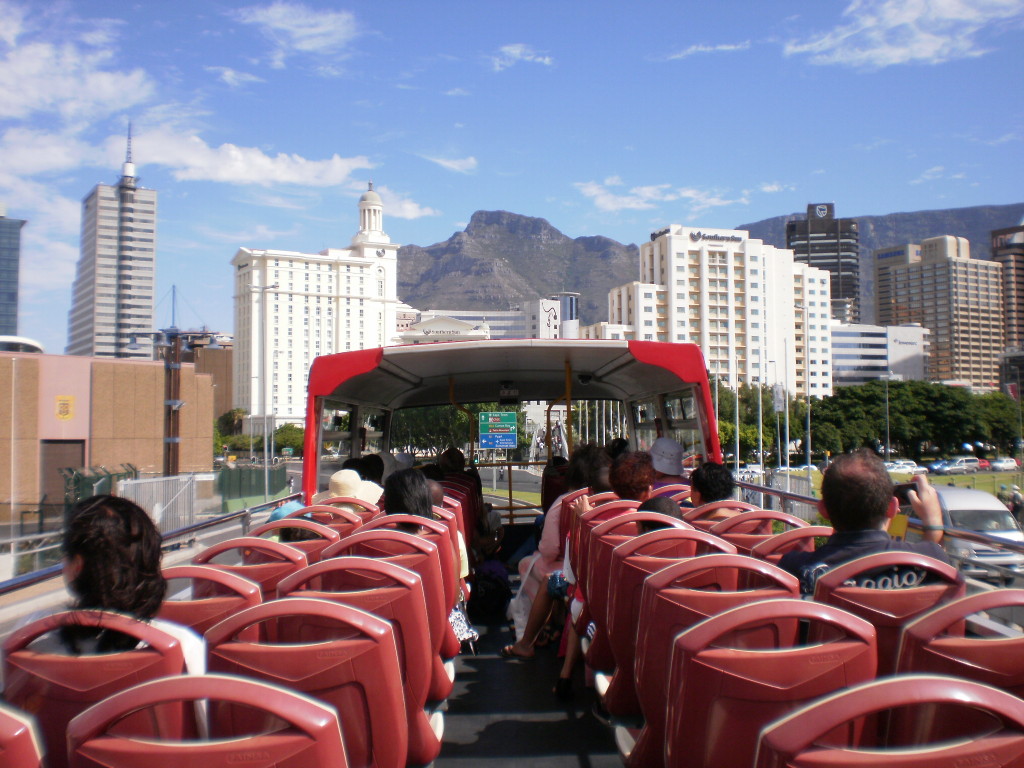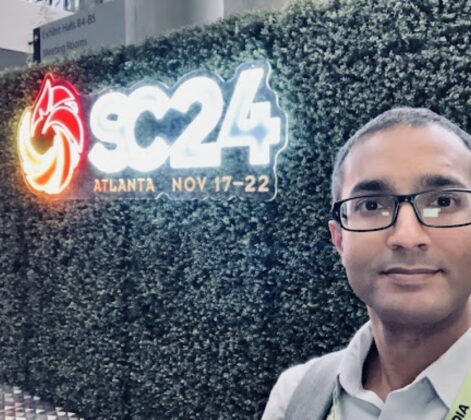I was pleased to read the recent New York Times article titled “Travel Industry Responds to Rise in Solo Sojourners.” Twenty-four percent of people who travel abroad are alone. I’ve traveled often over the past 10 years, and it’s almost always solo because it’s usually work-related.
Traveling alone can present security challenges, but I’ve always felt safe; probably because I’m experienced and know what to watch out for. I have some tips for anyone who is reluctant to strike out on their own. Exercising common sense, and following these rules could prevent you from having a bad experience.
Physical Security
- Before leaving home, put a hold on snail mail and newspapers, and set a timer so lights go off and on while you are away.
- Never engage in conversation with a stranger unless you are the first to make contact. That’s a common rule among weary Appalachian Trail hikers. It’s OK if you approach people at a gas station to ask for a ride, but never get into a stranger’s car if they ask first.
- Trust your gut. If it feels sketchy, it isn’t worth the risk. Even when you aren’t alone, your party could be stalked. I
was with a friend in Kuşadasi, Turkey (after exploring Ephesus) when a man followed us by taxi from a restaurant across town to our hotel. He got out of the next cab in line, and I didn’t believe it was a coincidence. He began to follow us into the hotel when I turned directly toward him, and remarked so that he could hear me as I smiled broadly, “Hey, that guy was in the restaurant.” He literally ran away. Later, we were amazed and amused that he had gone to so much trouble. Remember: Direct engagement (eye contact) is unnerving to someone with surreptitious intentions. If he were innocent, he would have ignored us, or invited us to the bar for a night cap (which we would have declined–even if he looked like George Clooney–because we weren’t sure he didn’t follow us).
- Don’t go to the restroom and leave unattended food that you plan to consume. Someone could slip a drug into your drink while you’re away and then follow you to your car or room. (Don’t hang your purse on the back of your chair, and don’t put it on the floor (insects). I put it on my lap, or hang it over one knee if there isn’t a purse hook or space in front of me).
- Do NOT carry pepper spray into an airport, and take a purse that hasn’t held pepper spray. The TSA chemical sensors caught the scent on my purse lining and I was sent for special treatment until they were convinced I didn’t have something bad in my bag. If you’re driving to an urban area, however, do carry pepper spray if it’s legal there; check local laws. For example, you can carry a concealed gun in Milwaukee (with a permit), but pepper spray and mace are illegal. If you’re cycling or hiking alone, pepper spray might keep big dogs or other animals at bay.
- Don’t go for a walk alone at 2:00 a.m. when your body thinks it’s 7:00 p.m. and you can’t sleep.
- If you love live music as I do, remember that every business has a back door that the proprietor won’t mind if you use, as long as your bill is paid. This knowledge was useful in Dingle, Ireland. The highly intoxicated and overly friendly brothers from Cork were probably harmless, but I didn’t want them to follow me. They might think I’m still in the ladies room. Where there is a concierge, ask them to call a taxi and wait inside until it arrives.
- Be aware of your surroundings. In 2009, I met a U.S. Marshall in Knoxville, Tennessee when I was visiting Oak Ridge National Laboratory. He was working at the hotel where I was staying and I struck up a conversation at the coffee shop (you might be surprised by the amount and type of criminal activity that goes on in Knoxville, btw). I could tell it was disconcerting to him that I traveled alone so often, and he felt obligated to give me advice. “Scan the space from left to right as you walk and observe physical characteristics of people and what they are wearing. Be able to describe them if something happens (and you never know what could happen).” Since I’ve begun to do this, there have been several instances where the practice proved to be useful (see number 3).
- Never roam when you’re impaired, which includes extreme jet-lag. Don’t abuse substances. Of course, this is a good idea even when you’re at home, but it’s highly irresponsible when you’re traveling. If you aren’t sure of your tolerance, don’t drink alcohol (btw, Melatonin and alcohol do not mix well). Thieves would love to see a drunk person wandering down the street alone; they would be easy to (rape, roll, beat up, whatever they feel like doing to someone).
- Request a rental car with local plates so the trucker network won’t know you’re far from home. While it wasn’t always that way, the trucker-cohort has acquired devious characters, according to my Teamster friends. They are known to broadcast details about female solo travelers over the radio.
- It’s OK to lie if a stranger asks if you’re alone (even if its a hotel clerk and requires an additional charge for the other person; an additional ten bucks is a small price to pay for the added security of my imaginary, well-built and armed boyfriend). Most of the time, it’s an innocent request, but once-in-a-while, my gut tells me they don’t need to know that I’m alone. Always listen to your gut.
Electronic security (protect personal and work-related data)!
Nothing you will carry is as important as your data, but few think about travel safeguards until there’s a breach.
Before you leave, and while you’re away:
- Avoid posting details about your itinerary on social media, or any publicly-available site. The “Stranded Traveler Hack” exploits the fact that you’ve announced you will be off-radar in a remote region without connectivity. DON’T DO THAT! The bad person then contacts your friends and family to falsely inform them that you’ve been kidnapped, or have met with tragedy, and asks your contacts to wire money (to a foreign account, of course). If you are planning to be incommunicado, tell only trusted people and come up with a strategy (safe word, for example) in case you really do need help.
- Make sure your GPS has the most current maps for the country you are visiting and update operating systems and antivirus software.
- Disable social media GIS settings and check this after you download new apps (some apps reset your settings). Special Agent Byron Franz, FBI-Milwaukee told of a kidnapping case where a stalker watched the mother’s Instagram account to determine the exact space and time when her child was out of her sight while walking to school. She had taken pictures of him waving just before he turned the corner…
- U.S. travelers should bookmark relevant State Department web pages and watch for travel advisory updates.
- Travel light! If you can, use an iPad, put your working files in the Cloud, and leave the laptop at home. Take only the data you need for your trip.
- Purchase a prepaid international SIM card and use an old mobile phone that doesn’t hold your contacts.
- Share a detailed itinerary with someone you trust, and schedule ways to make contact at designated times during your trip. While social media is a good way to update friends and family about your activities, geo information can be exploited by stalkers (see number 3).
- Make a fake alias Gmail account to use while you are on the road. Don’t import your contact list.
- Make a paper copy of personal contact numbers, photocopy of passport, and list of credit card contact numbers and keep it separate from your wallet or back pack in case they are lost or stolen (never record passwords, however). Make an electronic back-up of this information in case the paper document is lost. This will save you time if you must report them missing.
- Don’t leave your computer, iPad or phone in your room–even in the hotel safe, which employees could access and malware could be added when you aren’t looking. FBI Special Agent Franz suggests some people are hyper-curious about foreign travelers. The FBI captured surveillance videos of rooms being ransacked by multiple individuals who appeared to be searching for information (not stuff–they left the cash bait alone). Again, an unattended computer or phone could be tampered with and you might never know. THIS IS ESPECIALLY TRUE IF YOUR WORK INVOLVES SENSITIVE INFORMATION OR INTELLECTUAL PROPERTY. As for me, in more than ten years of frequent travel, the only things I’ve had lifted from my hotel room were a plastic comb, and a contact lens case (on the same day–they were after plastic, or DNA).
- Keep electronics within sight and reach at all times. Pickpockets often work in teams and what might seem like innocent activity—such as another traveler bumping into you, or someone choosing to sit close by when there are plenty of seats across the room—could be a staged event.
- Avoid being ‘in the geek zone’ on your mobile phone or computer when you are in unfamiliar place. Again, pay attention to your surroundings, the people around you, and where you are going. If you get lost, don’t act like you are—proceed with confidence until you get your bearings.
- Don’t take or make personal calls within earshot of others.
- Shield password/private information from bystanders when you log on.
- If you must use a public computer, do not conduct financial transactions or log in to sites that contain sensitive or private information.
- Never use USB drives that are given to you by people you don’t know or that you find in a public place. It’s a common phishing strategy to load devices with malware that transfers to a device when used. When it’s successful, it allows a malicious person to steal information or take control of your computer without your knowledge.
- Avoid public WiFi networks unless you know they are encrypted, and secure. If the service does not require authentication, it’s vulnerable.
- Never harbor an expectation of privacy when you’re working on a provided network connection.
- If you can outrun someone, then it’s OK to ask them to take your photo with your device. (Remember, your smart phone should hold a pre-paid SIM card; leave your contacts at home). The snorkeling photo on this blog post was a selfie! My passport, phone and car keys were buried under a rock on a cliff that was within sight at all times.
- Don’t wear your geek badge out on the street! Besides looking stupid, that way a bad person can learn your name and know which conference you’re attending. It wouldn’t be too hard to learn your schedule by looking at the conference agenda.
When you return:
- Change your passwords. It’s also a good idea to have computers and mobile phones checked by a professional to make sure they haven’t picked up malware.
- Start saving for your next trip! When the game is over, experience is the only investment you’ll take with you.
Being aware of and knowing how to deal with all risks will increase the likelihood that you’ll enjoy a safe and memorable travel experience.
———————-
Many thanks to Privacy Officer Tanya Choice-Henry (UW-Milwaukee), Security Specialist Von Welch (Director, Center for Applied Cybersecurity Research at Indiana University), and Special Agent Byron Franz (FBI-Milwaukee) for their contributions.

Organized tours are safe–everyone paid for the experience, but don’t let your guard down. If someone bothers you, try sitting near a family or couple so you can make it look like you belong with them. I usually sit in the back (in restaurants, too) so I can keep an eye on everyone and everything. This is beautiful Cape Town, South Africa.








